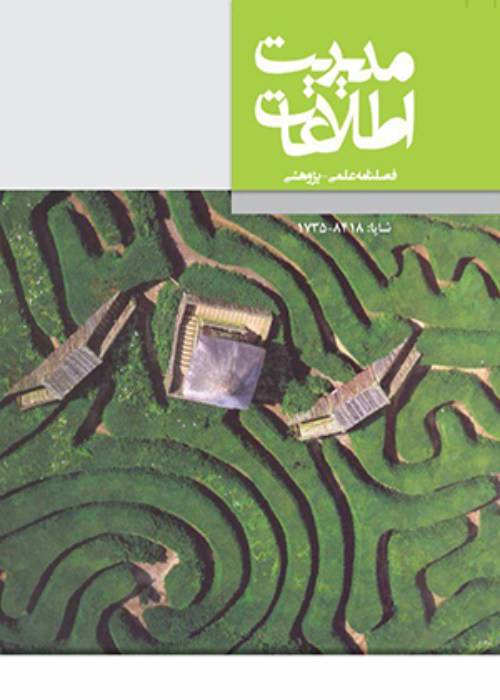Impact of Social Comparison on Fake News Release and News Credibility
Author(s):
Article Type:
Research/Original Article (دارای رتبه معتبر)
Abstract:
The spread of fake news on the Internet causes concern for people in the society, including the government, policy makers, organizations, businesses and citizens. Hence, with industry and academia observing that "fake news spreads significantly, faster, deeper, and more widely than the truth," there is an urgent need for multidisciplinary efforts to combat the spread of misinformation through online operating systems have been recognized. Increasing use of social networks exposes users to misleading information, satire and fake advertisements. Helping people identify fake stories by showing them with credibility indicators can discourage them from sharing such stories. Therefore, the aim of the present study is investigation of the impact of social comparison on the fake news release and the news credibility, considering the three modifying variables of gender, education and type of fake news. The current research is an aplication research and its method is descriptive-correlation. Considering that the number of users of social network services is over 100,000 people and considering Morgan's table, the sample number was at least 400 people, and according to the distribution of two questionnaires, the collected sample was about 800 people and were randomly selected from the statistical population. By forming a group of experts, a questionnaire is compiled and this questionnaire is distributed among the statistical sample. Then, the collected data was analyzed using SPSS software and structural equation modeling using PLS software. Convergent and Agra validity methods were used for the validity of the questionnaire. And for the reliability of the questionnaire, according to the opinion of Fornell and Locker (1981), reliability was measured in the PLS method using factor loading coefficients, Cronbach's alpha coefficients and combined reliability (CR). In this research, according to the presented conceptual model, 8 hypotheses are proposed, 2 of which examine the relationship between independent and dependent variables, and the other hypotheses examine the role of moderating variables. All of the hypotheses are confirmed. This study has shown that the need for a positive image and popularity in social comparison prevents people from sharing fake news.
Keywords:
Language:
Persian
Published:
Information management, Volume:8 Issue: 2, 2023
Pages:
174 to 201
https://magiran.com/p2717446
دانلود و مطالعه متن این مقاله با یکی از روشهای زیر امکان پذیر است:
اشتراک شخصی
با عضویت و پرداخت آنلاین حق اشتراک یکساله به مبلغ 1,390,000ريال میتوانید 70 عنوان مطلب دانلود کنید!
اشتراک سازمانی
به کتابخانه دانشگاه یا محل کار خود پیشنهاد کنید تا اشتراک سازمانی این پایگاه را برای دسترسی نامحدود همه کاربران به متن مطالب تهیه نمایند!
توجه!
- حق عضویت دریافتی صرف حمایت از نشریات عضو و نگهداری، تکمیل و توسعه مگیران میشود.
- پرداخت حق اشتراک و دانلود مقالات اجازه بازنشر آن در سایر رسانههای چاپی و دیجیتال را به کاربر نمیدهد.
In order to view content subscription is required
Personal subscription
Subscribe magiran.com for 70 € euros via PayPal and download 70 articles during a year.
Organization subscription
Please contact us to subscribe your university or library for unlimited access!


